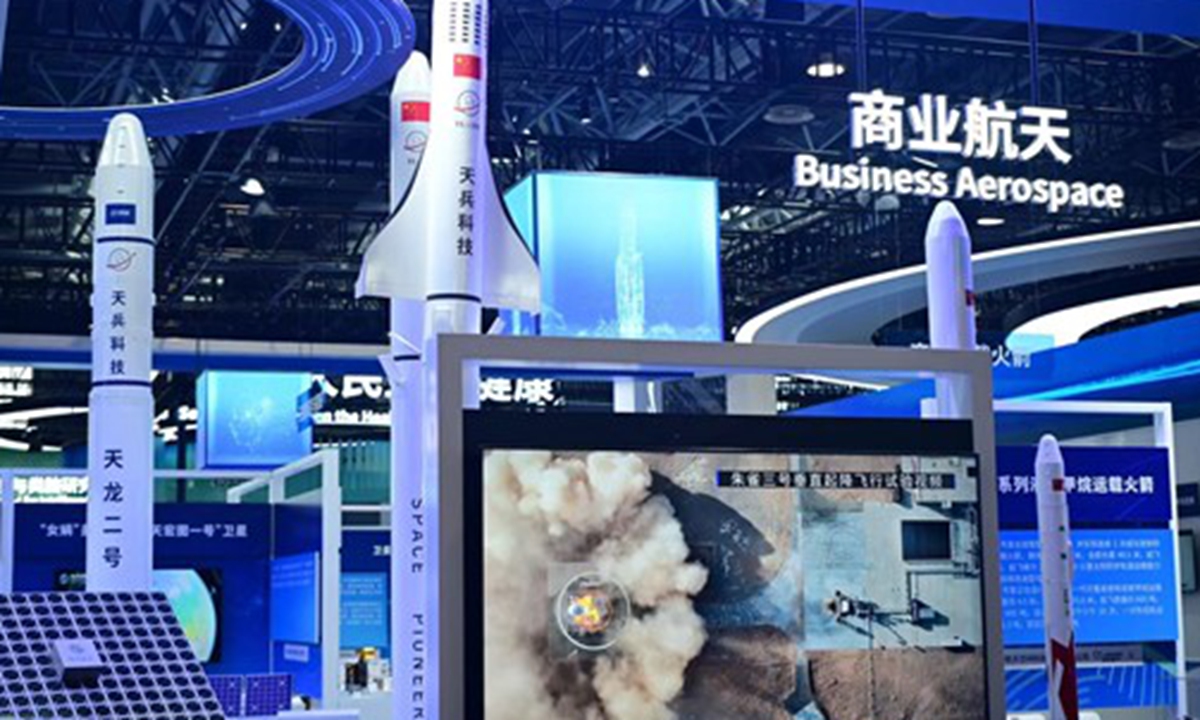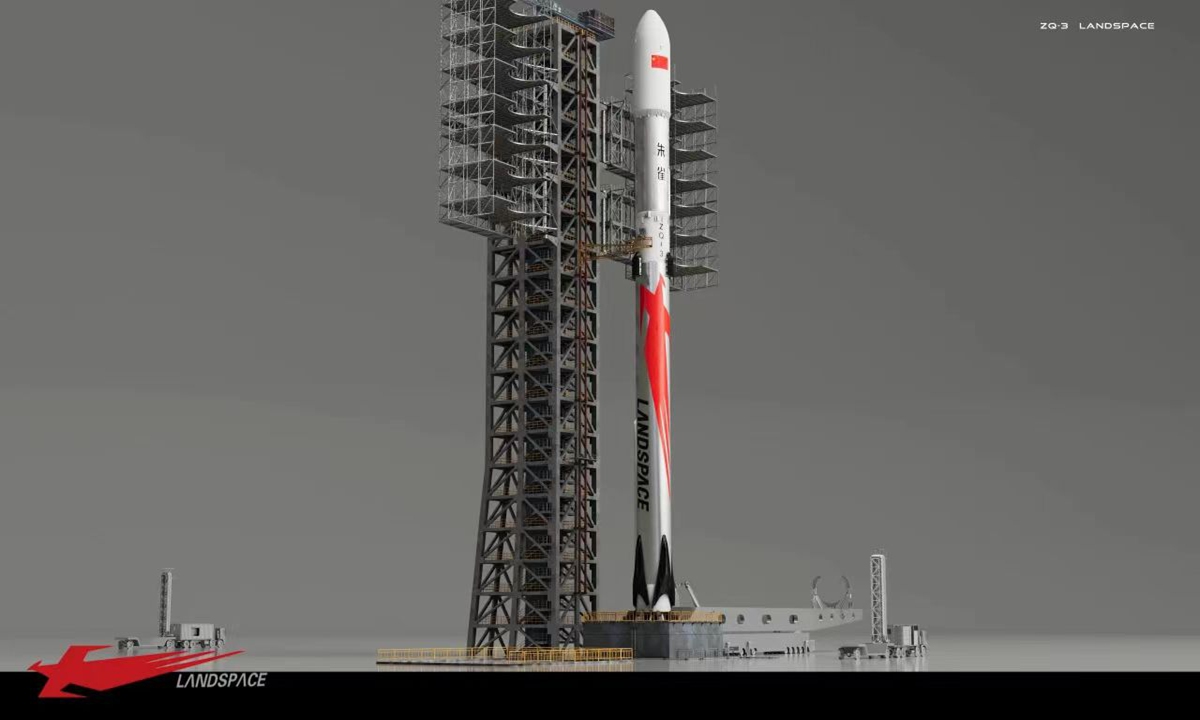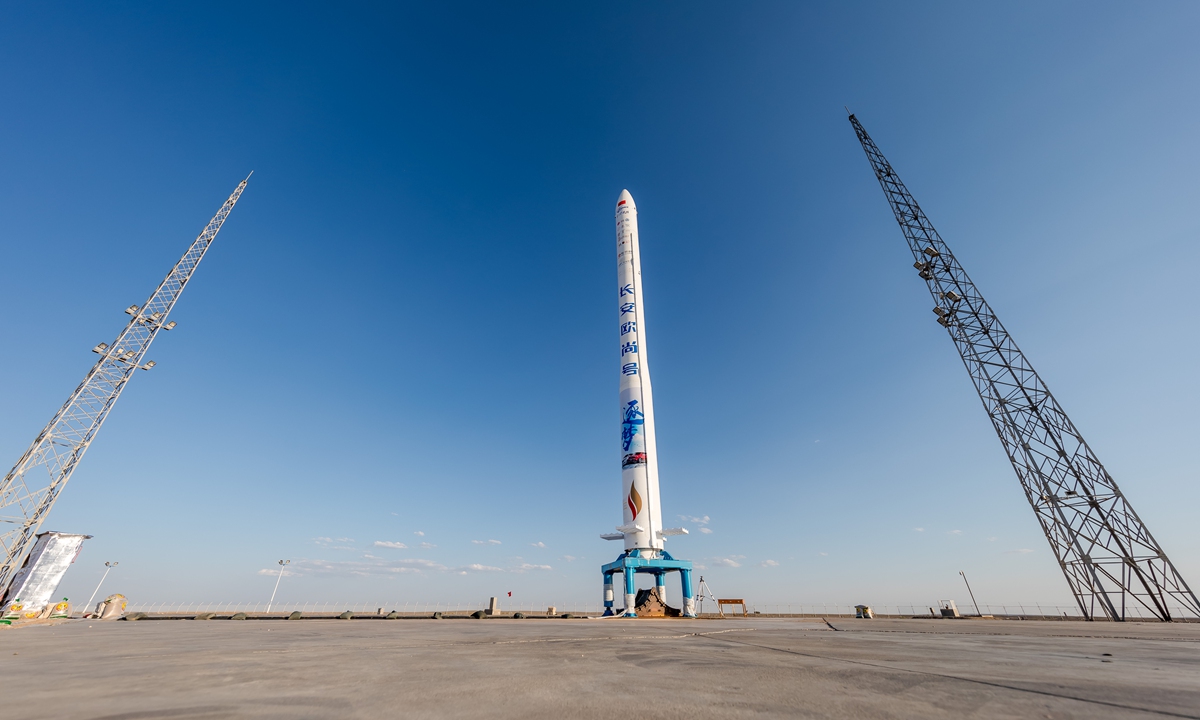China’s commercial aerospace companies speed up launch schedule following clear goal

The exhibition site of "Business Aerospace" at the 2024 Zhongguancun Forum on April 29, 2024 Photo: Tao Mingyang/GT
With China's increasing focus on the commercial aerospace industry, multiple Chinese private companies unveiled their launch arrangements for the year at the 2024 Zhongguancun Forum (ZGC Forum), demonstrating a clear map for the development of private commercial aerospace industry.
Zhang Changwu, CEO of Chinese commercial aerospace company LandSpace, told the Global Times on Monday that the company plans to conduct four launches this year and nine launches next year.
"This year and next year will see a mass delivery of ZQ-2 rocket. The current goal is to achieve the first flight of ZQ-3 as scheduled next year, and to be able to successfully land the first stage of our reusable rockets within the first three launches," Zhang said.
LandSpace's ZQ-2, the world's first liquid oxygen and liquid methane carrier rocket, was successfully launched last July, carrying a satellite into orbit.
Kang Yonglai, founder and president of another Chinese private rocket company Space Pioneer, said that the company's "Falcon 9 equivalent" large liquid-propellent reusable rocket model TL-3 will commence its first trial flight in July 2024.
We will have two launches next year, and the first will carry 18 satellites into orbit, followed by the second launch carrying 36 satellites, Kang said.
China is also enhancing the construction of satellite launching infrastructure to meet the increasing demand for commercial launch missions nationwide. Local media reported that the country's first commercial spacecraft launch site in Wenchang, South China's Hainan Province, is expected to become operational within the year.
Kang noted that Space Pioneer's three flights in this year will be all conducted at the site in Hainan.
In 2023, China's commercial aerospace companies completed 26 rocket launch missions, accounting for 39 percent of overall volume of space launch, and the size of China's commercial aerospace market is estimated to surpass 2.3 trillion yuan ($317 billion) in 2024, according to China Media Group.
Wang Yuecheng, chief analyst of Taibo Research, who focuses on commercial aerospace industry, told the Global Times on Monday that the satellite internet industry is a core component of the commercial aerospace industry, accounting for approximately one-third of the entire space economy and is growing rapidly.
The size of satellite internet industry reached $231 billion in 2023 and is expected to reach $319 billion in 2030. The size of space economy reached $630 billion in 2023 and is projected to reach $1.16 trillion in 2030, according to Global and China Satellite Internet Industry Research, a report released by Taibo Research, at the Aerospace Information Industry Innovation and Development Forum on Monday.
"For the sustainable development of the entire industry, the most important factor is ensuring that future large-scale projects have good performance and can be achieved at a low cost. In other words, they deliver market value and are economically viable, so that they can serve the public in the long term and meet daily communication needs," Zhang said.
Wang said that China's satellite constellation and satellite internet service will ensure nation's data security, and has broad export prospects for Belt and Road Initiative partnership countries.
The Chinese government has placed great emphasis on the satellite internet industry, concentratedly issued a series of policies related to satellite internet industry especially since around 2021.
Beijing's Haidian district, where the ZGC Forum is being held, published an action plan on Sunday to develop commercial aerospace innovation. The plan aims to achieve a commercial space industry with a scale exceeding 100 billion yuan, with more than 1,000 satellites in orbit within four years.



